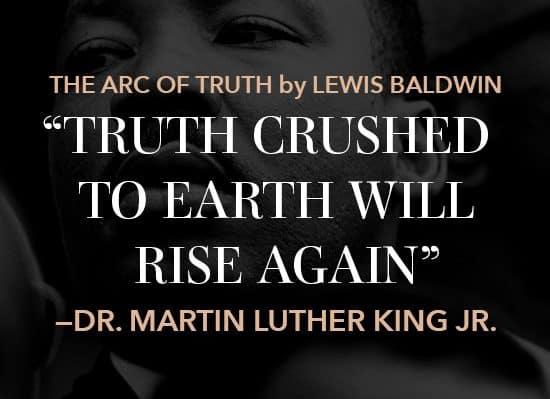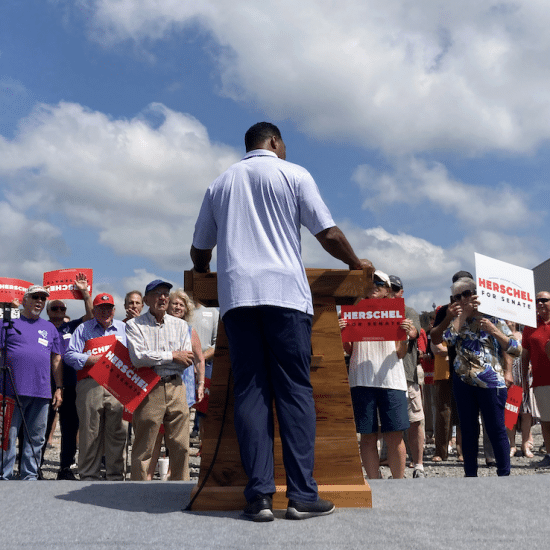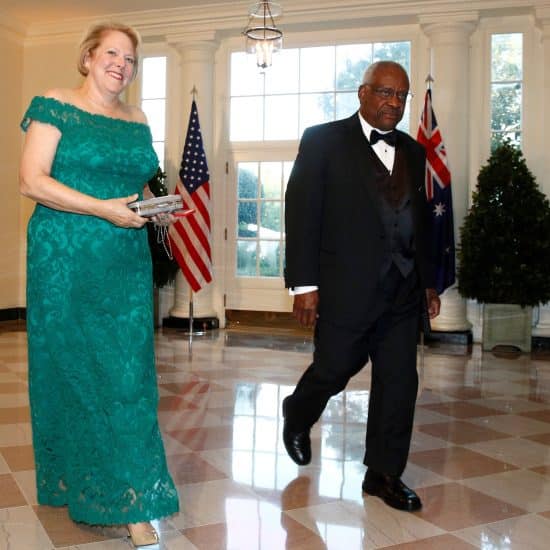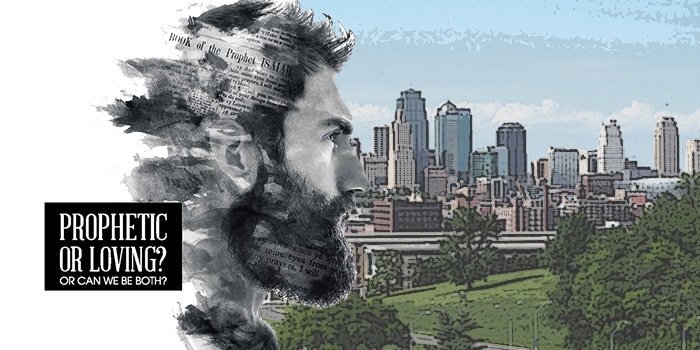
Truth telling is not easy. Just ask the Old Testament prophets.
Threatened, beaten, chained, put into stocks, imprisoned in cells and cisterns, threatened with death, killed — “Which of the prophets did your fathers not persecute?” Stephen asked the Sanhedrin right before they stoned the physical life out of him (Acts 7).
 Ross PetersonSpeaking God’s truth has never been easy and probably never will be, says Ross Peterson, adjunct professor in pastoral theology at Central Baptist Seminary in Shawnee, Kan., and former executive director of Midwest Ministry Development, a vocational support network for clergy with offices in several cities, including Kansas City, Mo.
Ross PetersonSpeaking God’s truth has never been easy and probably never will be, says Ross Peterson, adjunct professor in pastoral theology at Central Baptist Seminary in Shawnee, Kan., and former executive director of Midwest Ministry Development, a vocational support network for clergy with offices in several cities, including Kansas City, Mo.
“In the world of the prophetic, taking a stand by standing on your mountaintop with tablets in hand can cause others to get up on their own mountaintop and present their own truth,” Peterson said.
In a panel discussion hosted by The Brookings Institution in September 2017, Russell Moore, president of the Southern Baptist Convention’s Ethics & Religious Liberty Commission, noted a similar observation.
“What we have largely seen happening in American life is people finding tribal identities in political movements or cultural arguments in a way that often really isn’t about coming to a solution to those arguments but about identifying: ‘I am the sort of person who stands here as opposed to the sort of people who stand there,’” Moore said.
There is hope for rational dialogue between people of differing opinions and experiences, however, and a return of the Church’s prophetic voice in the midst of so many others claiming their own truth.
Peterson believes part of the solution is to engage genuinely with others.
“So often it’s the case that when we get close to a person, their situation becomes more complex,” he said. “It’s a lot more nuanced than when you saw it from afar. Understanding people’s story is a key element to understanding how it might be to be prophetic and at the same time loving.”
 W.T. EdmonsonW.T. Edmonson, associate pastor at Second Baptist Church in Jefferson City, Mo., agrees.
W.T. EdmonsonW.T. Edmonson, associate pastor at Second Baptist Church in Jefferson City, Mo., agrees.
“We can say a lot of things, but until we have purged ourselves and are willing to be vulnerable to our fellow man, people will only see us for what we are, not for who we want to be,” Edmonson said.
Issues of racism, sexism and bigotry continue to be opportunities to be intentional in addressing what the Bible says about difficult issues, if only churches will allow them to be, Edmonson said.
“People are coming to the church open and vulnerable,” Edmonson said. “If we are never intentional about addressing difficult issues, we are failing the people we want to serve. When we fail to address serious personal and societal issues, people go away as broken as when they came into the church.”
He would like to see the churches take a proactive rather than reactive stance when it comes to addressing the intersection of contemporary issues with the Bible’s teachings.
“These issues keep popping up, so why not address them before they blow up? That’s forward thinking,” he said.
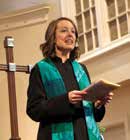 Carol McEntyreTalking is not enough though, said Carol McEntyre, pastor of First Baptist Church in Columbia, Mo.
Carol McEntyreTalking is not enough though, said Carol McEntyre, pastor of First Baptist Church in Columbia, Mo.
“With so much rhetoric that is anti-immigrant and anti-LGBTQ, one thing we’ve talked about as a congregation is that we want to be a safe place for people on the margins,” McEntyre said.
For FBC Columbia, the desire to be inclusive has been combined with Bible study and training in language and sociological perspectives of marginalized groups. Members also have been encouraged to learn about their own bias toward the “other.” The ongoing effort is part of a process, McEntyre said.
“We’ll probably have to keep coming back around to it,” she said.
On other issues, like healthcare and abortion, for example, the church must also speak out on behalf of “the least of these,” Edmonson said.
“I can’t go in the pulpit on Sunday morning and talk about what Jesus did for the poor, the lame and the ill and then not practice what we preach,” he said.
Edmonson said he worries that many in the faith community have their own reasons for not “speaking up and speaking out” on behalf of the marginalized, and, as a result, the Church’s prophetic voice is silenced.
Hearing a gospel message should change a person, he said, a church may have to be the one to bring up the difficult subjects.
At the same time pastors cannot give in to the temptation to talk about whatever is in the news that week from the pulpit, McEntyre said.
“I think a lot of pastors are having to examine their hearts and prayerfully consider when is it time to speak up about certain things that are going on in the news and in politics and when is it not appropriate to do that,” she said. “All of us who are pastoring maybe always have had to weigh that, but it seems more so now than in times past.”
Peterson said one of the pastor’s broader roles is to discern how to look at structures in society and figure out how to respond to them in a way that conveys love. On a more personal level, pastors must understand how their own sense of call intersects with their personal story.
“It’s not an accident that one pastor feels called toward justice ministry and another toward compassion ministry,” Peterson said. “Naturally people tilt one way or the other.”
After years of working with ministers, Peterson believes the key is for an individual to be introspective about natural inclinations.
“The church needs those who see issues in black and white, as well as those who see the grays,” Peterson said. “At the same time, both types of leaders also may at times be called upon to take the position that’s uncomfortable.”
Christians can and should seek to persuade others and to promote civility in a religiously diverse culture, Moore said.
“One of the great problems that we have in American life across the board is that we don’t ultimately believe that we’re going to be able to persuade one another of anything,” Moore said. “And, so, we assume all we can do is push one another into their categories and to speak about them rather than to them.”
But to turn hearts toward Jesus, people must speak to other people, even when they disagree. In his book “The Prophetic Imagination,” Old Testament scholar and theologian Walter Brueggemann writes that “the task of the prophetic is to nurture, nourish and evoke a consciousness and perception alternative to the consciousness and perception of the dominant culture around us.” Offering that different perception of the culture does not have to consist of “spectacular crusading or abrasive measures of indignation,” Brueggemann writes. Nor do they have to be expressed primarily in the contemporary issues of the day.
“The issues of God’s freedom and his will for justice,” Brueggemann added, “can be discerned wherever people try to live together and show concern for their shared future and identity.”




